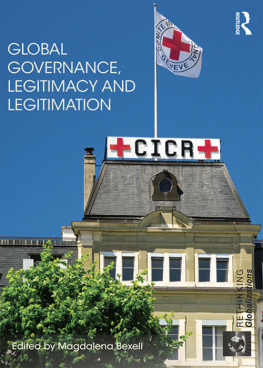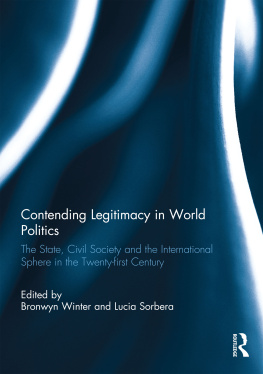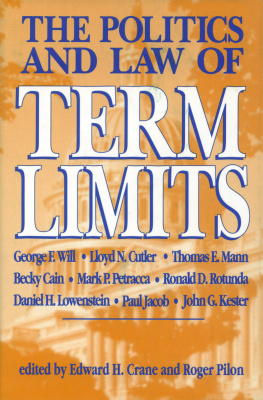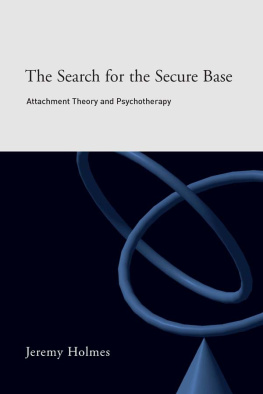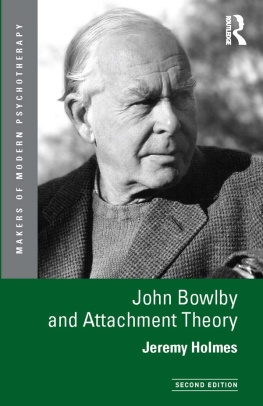First published 1976
This edition first published in 2015
by Routledge
2 Park Square, Milton Park, Abingdon, Oxon OX14 4RN
and by Routledge
711 Third Avenue, New York, NY 10017
Routledge is an imprint of the Taylor & Francis Group, an informa business
1976 Roger Holmes
All rights reserved. No part of this book may be reprinted or reproduced or utilised in any form or by any electronic, mechanical, or other means, now known or hereafter invented, including photocopying and recording, or in any information storage or retrieval system, without permission in writing from the publishers.
Trademark notice: Product or corporate names may be trademarks or registered trademarks, and are used only for identification and explanation without intent to infringe.
British Library Cataloguing in Publication Data
A catalogue record for this book is available from the British Library
ISBN: 978-0-415-72731-0 (Set)
eISBN: 978-1-315-76997-4 (Set)
ISBN: 978-1-138-78424-6 (Volume 38)
eISBN: 978-1-315-76354-5 (Volume 38)
Publishers Note
The publisher has gone to great lengths to ensure the quality of this reprint but points out that some imperfections in the original copies may be apparent.
Disclaimer
The publisher has made every effort to trace copyright holders and would welcome correspondence from those they have been unable to trace.
First published in 1976
by Routledge & Kegan Paul Ltd
39 Store Street,
London WC1E 7DD,
Reading Road,
Henley-on-Thames,
Oxon RG9 1EN and
9 Park Street,
Boston, Mass. 02108, USA
Manuscript typed by Jacqueline Bayes
Printed and bound in Great Britain
by Unwin Brothers Limited,
The Gresham Press, Old Woking, Surrey
A member of the Staples Printing Group
Roger Holmes 1976
No part of this book may be reproduced in
any form without permission from the publisher,
except for the quotation of brief passages
in criticism
ISBN 0 7100 8351 3
Donald G. MacRae
Few things are more unfashionable than thought thought which is of its nature unmediated as regards experience, elliptical in its modality, bothered therefore by the conventions of received accounts of reality and by the convenient lies wherein we have our personal and social being. It seems to me that Roger Holmes is guilty of thought of this kind, and that it is this which makes his collected papers worthwhile and, more than that, which makes them a unity. I do not wish when I call his thinking unmediated to suggest that it is not learned which it evidently is but to stress his sensory and intellectual nakedness, his candour towards matters which are repressed by the customary decorum of academic discourse, of the rhetorical forms which facilitate the polite conduct of academic teaching and research, and the scientistic apparatus by which psychology is customarily conducted in Britain and North America.
When Holmes asked me, a sociologist, to introduce his book I was both flattered and puzzled. True some of his earliest work had been published in the British Journal of Sociology during my period as its editor. I had welcomed these pieces because of their intrinsic merit and excitement and resonance, and also because the Journal had from its foundation on been intended to be ecumenical, spanning a related group of studies to which sociology was central, but which extends to anthropology, social psychology and philosophy. On the whole this catholic intention had been but partly achieved: here now was work by a psychologist which was relevant to all who were concerned to understand and explicate those devices by which social and personal life are made possible and even tolerable, but which was clearly work which only a psychologist could have done. It is only with reflection that I see why a sociological journal with the charter of the B.J.S. seemed to him an appropriate medium for what he had to say.
Two things appeared to be involved and perhaps Holmes would repudiate them both. One was the criterion of relevance, of the question to whom his concerns might matter. The other was the constrictive nature of psychology which in the silent, deadly struggles of the world of learning had taken on a hard carapace of scientism which is far from being the same as rigour in order to protect itself from the jealous predation of the life sciences, of medicine, of statistics as an end not a means in itself. Perhaps we sociologists, whose need of work like his was obvious, would also receive what he had to say without such constriction.
Put it another way: to an observer the situation in social psychology was not so much that of the hermit crab using the shell of a dead mollusc for protection as that of Oscar Wildes happy hypocrite who, donning a mask, found his face moulded to that mask. Only, in Wildes fable, the mask was indeed a happy assumption and aided its wearer to the winning of his beloved, while the mask worn by the psychologists had, though instrumentally successful enough, also left them with features capable of but a narrow range of expression, essentially unsocial. This range meant that the psychologist confronting existential realities might do best to mingle with the scaramouches of sociology and not merely instruct them but also learn himself a new freedom.
The paradoxes of our lives are very familiar but, out of habit or fear of pain or effort, very seldom explored. The self is contingently the victim and creature, patient not agent, of social and physical reality; it is also the maker of reality. We cannot say that this is a world we never made, but each of us may say this is a world I never made and would not will. Holmes approaches this paradoxical state with the help of great men. They are a Freud (who I do not quite recognize as the Freud most of us read), a Piaget who is very clearly the Piaget with whom I have argued and who is still in old age a creator and magus as well as a scientist, Marx and a Drkheim (to whom Holmes perhaps should pay more attention). But more important than these influences is Holmess sensitivity to experience and the contingencies, organizations and structures which we in part make and which in part are imposed on us by our life in time. Awareness, says Holmes, of the public present, then, the starting point for the empiricist and the end point for Piaget, is re-adapted biology. Our lives are a losing struggle for successful homeostasis, for equilibrium. The central trick in this, a kind of Hegelian cunning of reason, is that if we won the struggle we would not be: quite literally, would not be be? not merely would not be human in a human society.
The journey to this destination, itself open to its own potentialities and the contingencies of things, is by way of our biology, our infancy, our socialization, our reflexive relation to society. It is, like all novel thought and as I said at the beginning, elliptical. Spelling Holmes out in full would perhaps be to falsify him but would certainly involve an elaboration of exposition which these tight papers, interwoven as they are, do not possess. This seems to me merit but of course it could be taken as defect in terms of customary rhetoric. I shall, however, be most surprised if others do not spell him out, follow, and sometimes go further than he does. I hope that they do so with due acknowledgment, even in disagreement, to his work. I hope even more that he will himself continue to develop and extend what he gives us here.




